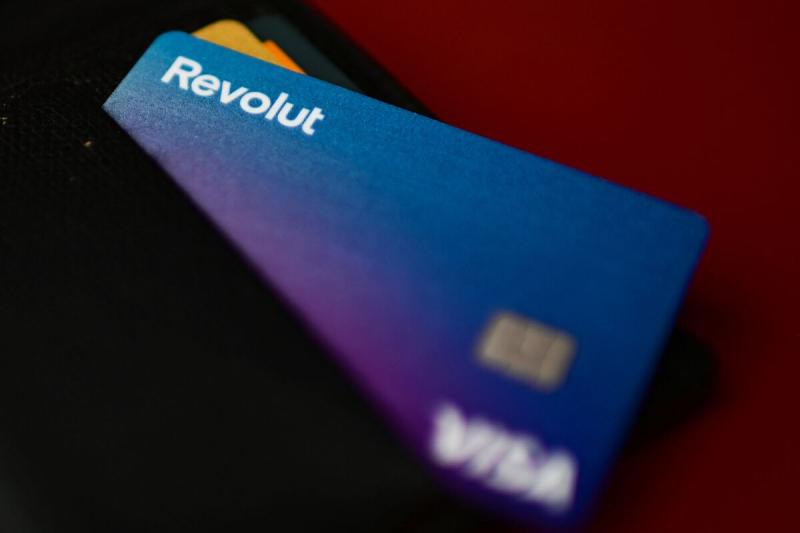From Pen and Paper to Discord: A Corporate Lawyer’s Journey into the Future
Adapting to the digital era meant embracing Discord—a hub for crypto and Web3 innovation. Business moves in real-time, breaking traditional hierarchies. Letting go of pen and paper, I transitioned to a fully digital workflow. In this fast-moving, decentralized world, adaptability isn’t optional—it’s essential.


For over two decades, my professional life has been built on contracts, negotiations, and the unmistakable rustle of legal pads. My world was one of face-to-face meetings, firm handshakes, and conference calls that required pressing multiple buttons on a landline. I watched as the email replaced the fax, as social media disrupted industries, and as Zoom meetings became the norm in the post-COVID era. And now, I find myself stepping into a digital frontier I never thought I’d explore - Discord.
Yes, Discord—the voice, text, and video platform originally built for gamers that has now become the town square for a new breed of entrepreneurs: crypto innovators, tech visionaries, and decentralized pioneers. It is here, in the middle of channels filled with rapid-fire messages and emoji reactions, that I have discovered a new way of working, networking, and, most surprisingly, learning.
The Evolution of Communication
I remember when Facebook first launched, followed by Twitter, and how businesses were slow to grasp their potential. They were seen as distractions, rather than tools. Fast-forward to today, and entire companies operate on Discord. Legal discussions, investment pitches, and even major business decisions happen in real-time, across the globe, in a format that’s anything but traditional.
What makes Discord fascinating isn’t just the speed at which information is exchanged, but the culture that comes with it. Gone are the rigid formalities of traditional boardroom interactions. Instead, discussions are punctuated with GIFs, memes, and inside jokes that, surprisingly, don’t dilute the importance of the conversation but rather enhance it. This generation has redefined professionalism—not by stripping it of its seriousness, but by making it more human.
Crypto Entrepreneurs: The New Titans
It’s no coincidence that crypto and Web3 projects thrive on Discord. Unlike the hierarchical corporate structures I’ve been accustomed to, these communities embrace decentralization not just in their technologies but in their collaboration styles. In a single Discord server, you might find a 19-year-old coding a revolutionary blockchain protocol while chatting with a 45-year-old venture capitalist. Titles matter less than contributions. It’s a meritocracy in its purest form.
As a corporate lawyer, this shift is both exhilarating and challenging. The traditional legal framework wasn’t built for DAOs (Decentralized Autonomous Organizations), smart contracts, and governance tokens. The speed at which innovation is happening means that the law is always playing catch-up—something that my generation, used to stability and precedent, finds unsettling. But that’s exactly why I admire these new builders; they are unafraid of creating firsts.
Leaving Paper Behind: The Remarkable Shift
I’ve always been a pen-and-paper kind of person. There was something reassuring about flipping through a stack of case notes or marking up contracts with a highlighter. My younger colleagues, however, have moved on to digital tablets—most of them swear by Remarkable, a sleek device that mimics the feel of writing on paper while integrating seamlessly with the digital workspace.
For a long time, I resisted the change. Old habits die hard. But as I began exploring Discord and immersing myself in the world of Web3, I realized something: paper was holding me back. So, I finally gave in. I got a Remarkable 2, started digitizing my notes, and suddenly, I felt lighter, faster, and more connected. No more piles of legal pads cluttering my desk. No more flipping through dog-eared pages searching for a specific annotation. Everything is in one place, accessible at any moment, just like the fast-moving conversations happening on Discord.
And now? I don’t want to go back.
What Discord Means for the Future
If my journey through technology has taught me anything, it’s that adaptability is survival. Discord isn’t just a chat app-it’s the embodiment of a new way of doing business. A world where hierarchies flatten, where expertise is decentralized, and where transparency isn’t a buzzword but a fundamental expectation.
While I may still appreciate the nostalgia of pen and paper, I know that the future isn’t in static documents - it’s in living conversations, open-source collaborations, and real-time decision-making. Platforms like Discord aren’t just shaping how businesses communicate; they are reshaping what business is.
So here I am, a corporate lawyer from a different generation, adjusting to a world of bots, threads, and “gm” greetings. And I must admit - I kind of love it.
Contact us for a free consultation
Get expert advice and tailored solutions from industry leaders.



